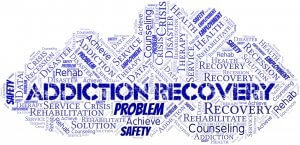Do you know someone who is struggling with addiction? The chances are good that you do. According to a national survey, over 20 million people over the age of 12 struggled with substance abuse in 2019. Individuals who struggle with addiction often do not receive the services they need for recovery. If someone you care about is struggling with substance abuse or addiction, you probably don’t know where to start. You want to help, but you’re not sure how. Perhaps you want to address the issue with them without making things worse. Here are some tips on things you can do to support the addict in your life.
Learn About Addiction Stigma

There are many individuals with an addiction who feel uncomfortable with labels like ‘addict’ or ‘alcoholic’. They may feel that leading with terms like this reduces their identity to a label. This is understandable, as addiction is highly stigmatized and often treated as if it were a choice or a moral failing when it is not.
However, other individuals within the addiction community will insist upon using labels like alcoholic and addict. For example, in many 12 Step groups, people will introduce themselves by sharing their name and addiction. In this setting, the belief is that an addiction will always try to trick the individual into believing that the addiction is ‘over’. This loss of vigilance is when relapse is likely to occur. Some individuals will use statements like “My name is Jane/John Doe and I’m an addict/alcoholic” as a way of self-reminding that the addiction is always present, no matter how long they’ve been in recovery. It is a conscious decision to incorporate the term ‘addict’ into personal identity, as a way of both rejecting stigma and protecting recovery.
In this article, you will see language like ‘addict’ and ‘alcoholic’ used. When you discuss addiction with your loved one, be sure to ask them what language they would like to use and follow their lead.
Understand Addiction and Get Support
Addiction is not a choice. It is a disease that affects the sufferer psychologically and physiologically. Drugs and alcohol can rewire the brain, disrupt cognitive functioning, and lead to physical chemical dependency. As an addict becomes dependent on a substance, their value system will shift to supporting the addiction rather than on maintaining relationships or keeping other daily responsibilities and obligations.
You may begin to observe that your loved one is not acting like their usual self. They may be engaging in concerning behaviors, say impulsive and unkind things, or fail to meet commitments. This can place strain on both your own mental health and your relationship with the addict. It can feel like the addict is abandoning you or has stopped caring.
Experiencing fear, worry, sadness, guilt, and anger are all normal responses to watching a loved one struggle with addiction. However, addiction is not a choice or a moral failing. Addiction is a debilitating disease that alters a person’s brain chemistry and controls almost every aspect of their daily life. Understanding this can help you to move through your own hurt.
There are many resources available for loved ones of addicts. Seek info from:
- The National Institute on Alcohol Abuse and Alcoholism (NIAA)
- The National Institute on Drug Abuse (NIDA)
- The Substance Abuse and Mental Health Services Administration (SAMHSA)
- Al-Anon offers support groups nationally for family and loved ones of addicts.
Seeking your own individual therapist can also provide essential support as you move through the process of supporting a loved one with addiction.
Address the Issue, Not the Person

Confront the problem honestly, but remember the goal of the conversation is to become a team and face the addiction together. When you communicate with empathy and love, the addict will be more open to hearing your concerns and also feel safer coming to you next time they need support.
Do not hold your love or comfort against them. Statements like, “If you love me, you’ll quit” are damaging and ineffective. These types of statements can cause shame and make the addict see you as someone they can’t approach for help if they experience a relapse. Instead, try phrases like, “I love you and am worried. How can I help you in your recovery?” Show them in word and deed that they are valued and not alone.
Understand the Difference Between Helping and Enabling
There is a fine line between helping an addict and enabling an addict. Enabling is not something people do intentionally. Instead, it is an unintended consequence of trying to be too helpful. People experiencing severe addiction may have financial difficulties, risk losing housing, or encounter legal troubles. Family and friends often try to protect their loved ones from the consequences of their addiction, in the hopes that it will stop the situation from getting worse. They may provide housing, money, and food to the addict. They may pay for legal representation for the addict. Consequently, the addict may avoid a criminal record, but they can also avoid court mandated addiction treatment settings.
By protecting an addict from the consequences of their addiction, it allows the addict more time and space to engage in the addiction. Severe addicts often cannot recognize the need to stop using until the problems caused by the addiction become untenable. Take an honest look at your own efforts to support your loved one. Does it look like “rescuing” behavior? If so, then you may be enabling the addiction.
Set Boundaries
Addiction does not go away on its own. Addiction recovery does not simply “happen”. It requires active engagement and hard work. This means the addict needs to take steps towards these changes. You can be a big support, but you can’t “fix it” on your own. In relationships where the boundaries are lacking, enabling can happen. In these cases, you consider the needs of the addict to be just as important as your own. However, the addict must learn from their own mistakes. You cannot protect them from the consequences of their addiction. Show love, kindness, and compassion. But make sure to hold space for your own needs, and set limits to how much you will intervene.
Relapse is a Part of Recovery.
Understand that recovery from an addiction is a lifelong process. Sobriety is hard won and even harder to maintain. Research shows that in the first year of recovery, 2 out of 3 addicts will experience a relapse. However, the risk of relapse drops over time. After 8 years, the majority of people in recovery maintain their sobriety. A relapse is not a sign of failure or something to be ashamed of. It is simply another step on a long road to recovery. If the addict in your life discloses a relapse to you, respond with compassion and try to find ways to move forward together.
Curious About Therapy in Scotch Plains, NJ?

- Connect with us at Brave Minds Psychological Services.
- Speak with one of our counselors to discuss the right steps for you.
- Connect with us and take that first step forward.
Other Services Offered in Scotch Plains, NJ
At Brave Minds Psychological Services we provide EMDR Therapy, couples counseling, postpartum counseling, and birth trauma therapy. As well as counseling for anxiety, trauma, and food allergy anxiety. Our caring counselors provide mental health services for adults, teens, and children. We offer treatment for teen anxiety, social phobia in teens, child sexual abuse, child anxiety, and more. Prefer building a support network with group therapy? Our therapists also offer several options for group therapy. Our services are offered in person at our Scotch Plains, NJ office and through online therapy in New Jersey.



